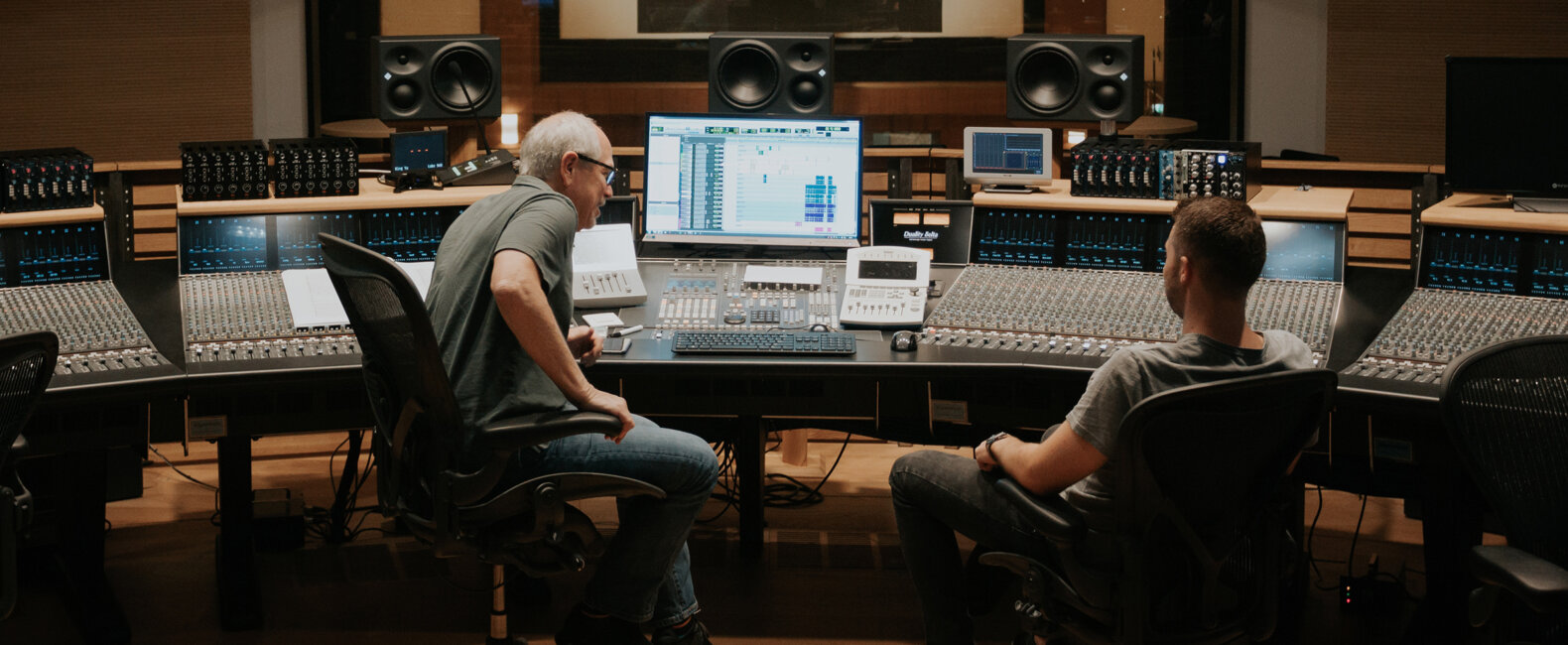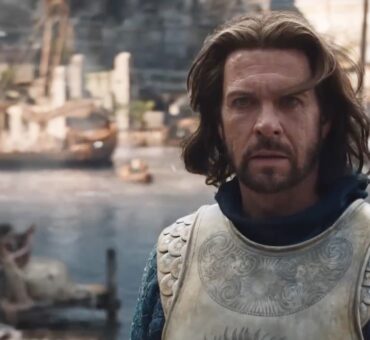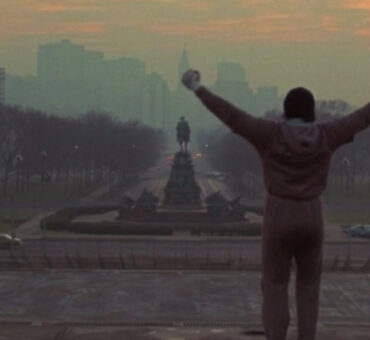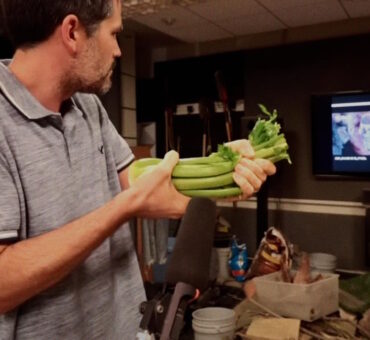It’s one thing to imitate another artist. But it’s another, much deadlier thing to imitate yourself. There often comes a point in an artist’s career when they find themselves in a self-destructive loop, looking to their past work as a guide for their future. It’s called a creative rut, and not everyone makes it out alive. Earlier this year, Tony Anderson found himself in a creative rut. “A lot of my music was starting to sound homogenized,” he told us. “I’d started making songs that inadvertently sounded all the same. But I don’t think human beings, especially ones who have music flowing in them, are on earth to write the same kind of music over and over again.”
Breaking out of his rut would require drastic measures: a challenging new project, an unexpected failure in Nashville, and a trip to a Communist-era concert hall in Slovakia. The resulting score is unlike anything Tony Anderson has ever done before, and it didn’t come without it’s fair share of suffering.
Here’s our conversation with Tony.

HEAR THE SCORE
Tony Anderson: Two years ago I asked a good friend to tell me what was wrong with my music. I told him not to lie to me. He said, “You’re playing it safe. There’s something in you that isn’t willing to go past the boundaries of what you know.” Then he said, “I don’t know what it’s going to take for you to expand outside of this, but I hope you find it.”
Musicbed: You were in a rut?
A lot of my music was starting to sound homogenized. I’d started making songs that inadvertently sounded all the same. But I don’t think human beings, especially ones who have music flowing in them, are on earth to write the same kind of music over and over again.
Before I started working on this latest project, a film about the underbelly of the sex trafficking industry, a mentor of mine gave me the best advice I’ve ever heard. He said, “You need to turn off your contemporaries the entire time you write this music. Stop streaming music. When you go home at night, don’t listen to music. Instead, watch the best 100 films you can think of. Take in those unbelievably deep stories. Be inspired by people who have truly given their entire lives for this.” So that’s what I did. I dropped off social media entirely and took in only those things that I knew would stir my soul.
“This whole thing brought me to a new level of humiliation. But it’s also taken me to a new level of focus that I never imagined myself getting to.”
Did you know this latest score was going to be particularly challenging?
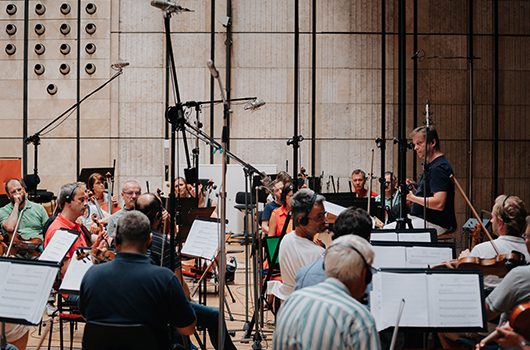
Well, I knew I needed to work with real musicians. The nature of the film demanded that there be life in the music. I couldn’t use digital samples. It had to be real people. And honestly, I’d never done anything like that before. I’ve just been a guy sitting in a solitary room with a fast computer and a lot of software.
So back in April, I took the first 15 to 20 minutes of the film and wrote music for a quartet. We had a very limited budget, so I thought, Okay, we’ll just use four string players, and then we’ll double or triple the amount of takes to make it sound fuller. I had an incredible orchestrator named Brandon Collins in Nashville helping me do this. We got to the session, and these string players sounded incredible, man. I was so excited. We knocked it out. It sounded lush; it sounded human, which was good because I’d basically spent half the budget on this. I figured if it worked, I’d write the rest of the score this same way. But when I handed the tracks to the directors, they were like, “This doesn’t work. It sounds like I’m in my living room when I listen to it. The footage in the film is grand, epic. The music is just too small. We need you to redo it.”
Obviously, as a composer you’re supposed to get used to that sort of thing, but I was notused to it. I was very frustrated and angry and devastated that the plan had backfired. So I told them, “Look, if you want me to do this right, then we need like a ton of strings. And we’re going to have to go to Eastern Europe.”
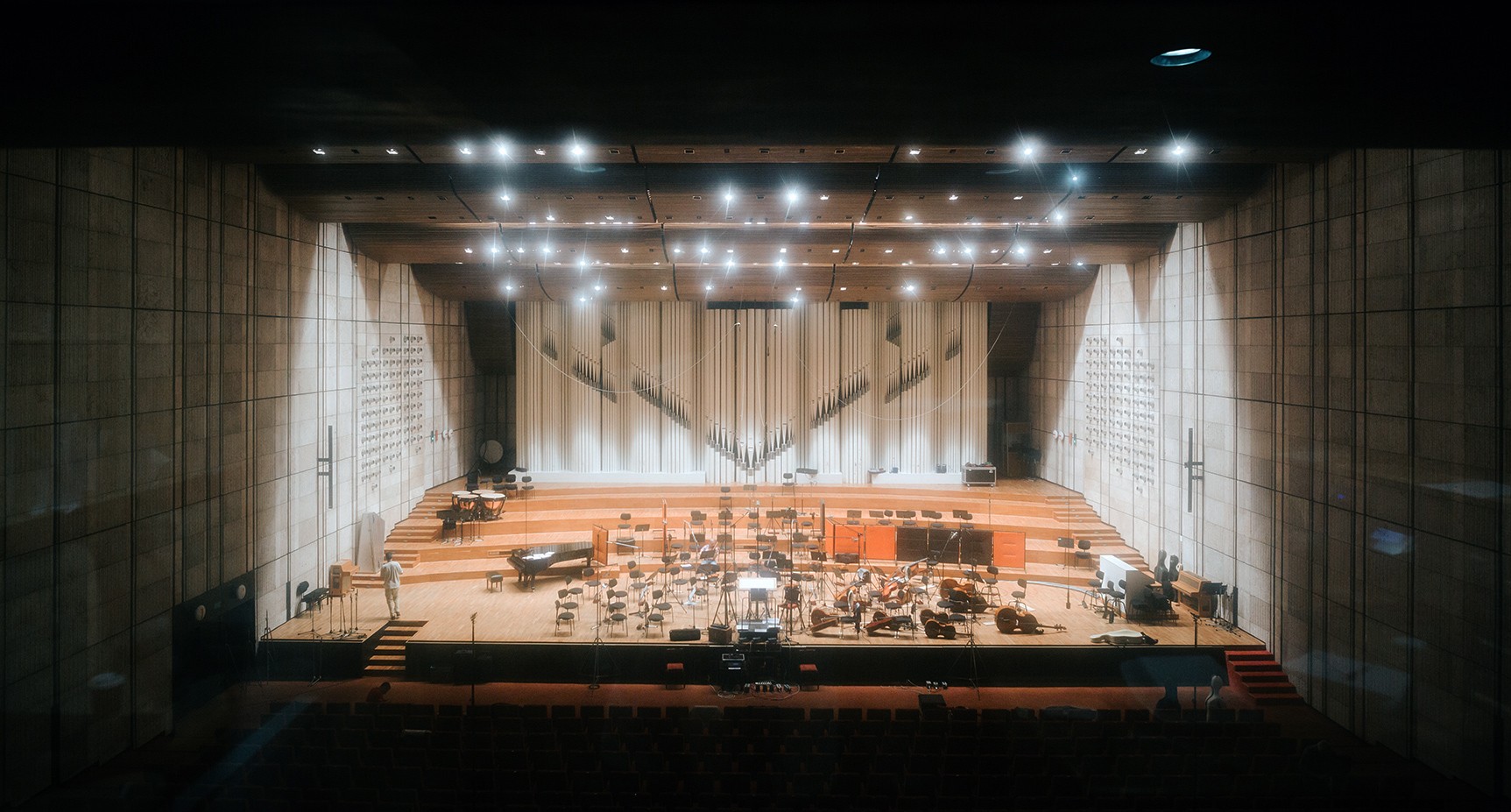
Why Eastern Europe?
Romanticism, man! Their playing is very, very intuitive. They get emotional. They’re hungry to make music. You can hear the difference. It doesn’t sound like the straight-toned American playing I’m accustomed to. It sounds wild! It makes you feel something. The strings try to crawl out of the speakers and into your soul.
So we went to Slovakia to this weird Communist-era concert hall that hasn’t been updated since the 1950s. The carpet was probably installed the same year JFK was born. There’s this incredible team of Germans who run this thing. They’re the coolest, most amazing people I’ve ever met. And this was a top-tier setup. The same recording quality you’d get at Abbey Road. They fly in the mics and the engineer from Europe because they love this old hall and these players so much.
Did recording there fix the problems from Nashville?
No! Once we started recording, it was immediately obvious that the sound wasn’t anywhere near what we thought it would be. We had to scramble. Otherwise, I was going to come back to the States with maybe one piece of music I was happy with.
What was wrong?
I was being hit in the face with the reality of how a real orchestra sounds versus how digital samples have taught me that it sounds. The lie I’d bought into was that working with real people would automatically sound better than anything I could mock up with software. It’s not that easy. The truth is, to get that smooth, soft, epic sound we wanted, we needed probably 40 violinists. We had 18. They sounded too shrill, too detailed, too close. I looked at our producer and said, “I’m sorry. I basically just re-created a louder version of Nashville.”
Luckily, though, in Europe you can overdub and do multiple takes of just the violins on their own. In the U.S., labor unions charge you to do that. But there, we could overdub as many times as we wanted. So Brandon was like, “Let’s do that again. Let’s do that again.” Then he’d have the violins sit out so we could treat their part separately in the mix.
And mixing has really been the saving grace of this whole thing. My buddy Satoshi [Noguchi], who has mixed films like Tron: Legacy and The Dark Knight Rises, called me up afterward and asked how it went. I told him what happened, and he said, “Give me all the Pro Tools sessions.” I paid to make my Internet speed 10 times faster so I could upload these files, and he mixed them for me in 24 hours. I’ve been messing with it ever since, using some new reverbs, and it’s just now starting to sound like magic. It sounds totally different than anything I’ve ever released. It blows away this overly compressed, predictable thing I’ve been doing. It moves you into a different world because it was made by people who’ve spent their entire lives with their instruments.
Working on this project completely changed my workflow. I couldn’t rely on software to fix everything. It was really an exercise in releasing creative control, which was very difficult for me. I’m used to sitting in a room and making all the decisions. But in Slovakia, I was standing there with 40 musicians, and I realized this thing wasn’t even mine anymore. I realized I wasn’t the most important person in the room. Everyone had equal buy-in to this thing. They took it personally. That was something totally new for me.

Was that what it took to pull you out of your rut?
Yes, I think so. My ego had to take a beating. This whole thing brought me to a new level of humiliation. But it’s also taken me to a new level of focus that I never imagined myself getting to. This might sound cliché, but I feel like this is the beginning of my career. I remember this one moment in Slovakia. The night after we finished recording, there were 16 of us at the table drinking French wine and eating Asian food. It made no sense. But I looked around and I was like, “This is what I want.” The only thing missing was my wife, but I was like, “This is it. I don’t want to do this alone anymore. I don’t want to rely solely on what I know anymore.” It cost me a lot, but I think I’m going to be a changed man and a changed composer on the other side of this. I looked around the table at the community this project had built, and I just knew, “This is it.”















































































